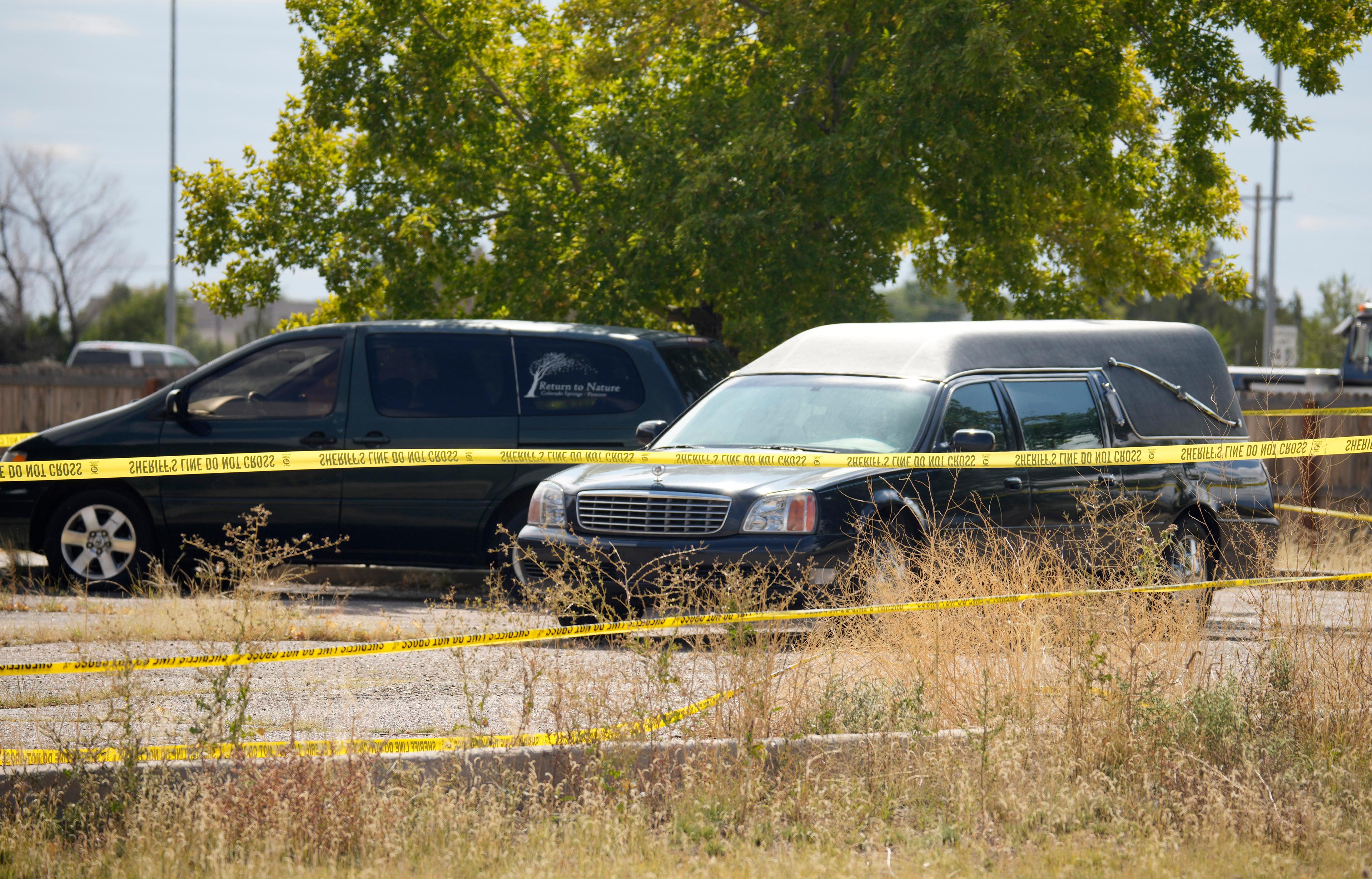
Gov. Jared Polis signed a trio of bills on Friday to regulate the state’s funeral industry following a number of high-profile instances of egregious mismanagement in recent years. Up until now, Colorado had been the only state in the country that did not regulate funeral home directors.
“Too many Colorado families have faced the unthinkable in not knowing what happened to the earthly remains of their loved ones after having paid for services that they never received,” said Polis. “It's time to professionalize the funeral industry in Colorado.”
When Samantha Naranjo’s grandmother Dorothy Tardif died in 2022 in Colorado Springs, the family received her ashes from Return to Nature, a so-called green burial company based in Penrose, but with a storefront in Colorado Springs.
Naranjo said the family scattered what they thought were her grandmother’s ashes over a mountain. They also combined some of her ashes with those of her deceased husband and son.
But more than a year later the FBI informed them that Tardif’s body was not cremated and they never received her actual ashes. It was powdered cement. Her remains were found inside a building in Penrose where investigators discovered hundreds of improperly stored bodies and evidence that the couple who own Return to Nature sent fake ashes to families.
“One of the biggest things that helped identify her body was the nightgown that she was wearing,” said Naranjo. She said she hopes no other family ever has to experience this.
“I'll forever be carrying around Quikrete (cement) mixed with my grandfather and my uncle,” she said.
Colorado’s new law, which goes into effect in 2026 would require funeral home directors, morticians, embalmers, cremationists and natural reductionists to hold a professional mortuary science degree, pass a national board examination, complete a one-year apprenticeship and pass a criminal background check.
For those currently working in the industry without a degree, they could get a provisional license if they pass a national board test and have worked enough hours.
“This isn't necessarily a happy occasion, but this is a time for the family members who are here to be thanked for your advocacy,” said Democratic Sen. Dylan Roberts, the bill's main sponsor.
“I think what you've gone through is absolutely terrible and horrendous and should have never happened in the first place, but your commitment to make something good out of a terrible situation is commendable,” he told the families in attendance.
Roberts first got involved in the issue several years ago when a funeral home in his district in Leadville was caught mixing the ashes of a deceased newborn with cremains from other individuals, which led to an investigation and charges.
In 2022 Roberts helped pass a bipartisan bill to give the state authority to inspect funeral homes, but the state did not assign a full-time employee to do inspections. On Friday Polis signed House Bill 1335 into law that would add two full-time inspectors.
Joe Walsh, the head of the Colorado Funeral Directors Association, which had been asking the state for regulations for more than a decade, said the laws were the right step.
“It is a very sad, tormenting and tortuous journey to get here,” Walsh said.
Walsh owns 5280 funeral homes in Aurora and said the law balances oversight and guardrails, without forcing good funeral home directors out of the industry. He said none of the incidents in Colorado should have happened, but said those tragedies fueled the legislation.
“Nobody's going to change things if everything's running smoothly as a rule. And that's the sad part, that these families had to go through this.”
Republican Rep. Matt Soper from Delta also sponsored the legislation after dealing with high-profile incidents on the western slope. A funeral home in Montrose was found to have sold body parts from hundreds of corpses without the permission of the deceased or their loved ones. Megan Hess, the former owner of Sunset Mesa Funeral Directors, is now serving a 20-year federal sentence.
“Is my loved one really being cremated? Is my loved one really in that plot? You should never ever be thinking about that on the day that you're at your loved one’s funeral,” said Soper.
A report from Colorado’s Department of Regulatory Affairs detailed a number of troubling incidents at other facilities around the state that did not make headlines. Those included improper refrigeration, poor record keeping, and shoddy embalming that led to decomposition and odor. There were also cases of remains laying in pools of their own fluids and unsecured ashes left on unclean cooling trays.
House Bill 1254 was the final funeral-related proposal Polis signed into law. It bars a funeral home owner from also owning a non-transplant tissue bank.








